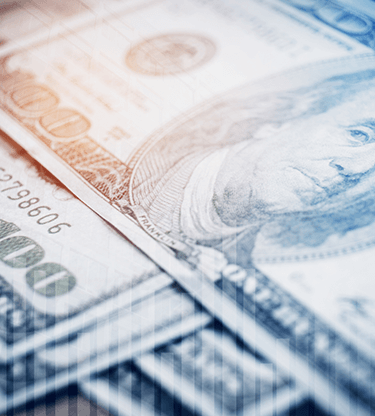Daily Brief

US stimulus bill moves closer
3 minute readOil up, stimulus almost done
The two main developments at the end of last week and over the weekend involved oil prices and the long-awaited US fiscal stimulus. Oil went higher, propelled first by OPEC curbs then by a mostly unsuccessful attack on a Saudi oil terminal. President Biden’s $1.9 trillion stimulus package received Senate approval on Saturday.
Among the currencies it was the Norwegian krone that came out best, strengthening by an average of 0.7% as a result of more expensive oil. The slightly less closely oil-linked Canadian dollar shared second place with the US dollar, going up by 0.1%. Sterling was in last place with the euro and Swedish krona, falling 0.3%.
The Senate’s passage of the big stimulus bill has not, so far at least, had the result that might have been expected. Where such measures in the past were typically positive for risk-appetite, this one has brought increased concern about inflation. Higher Treasury yields have made investors less enthusiastic about the bill, sending Asian shares and US equity futures lower in the Far East this morning.
Good jobs
Friday’s statistical highlight, the US employment report, delivered mostly better-than-expected numbers but had little impact on the US dollar. Although investors liked what they saw, they were unsure what to do about it, especially after the US Treasury Secretary played down the implications for inflation.
US nonfarm payrolls increased by 379k in February, twice as many as predicted, and January’s rise was upwardly revised from 49k to 166k. Although there are still more than 9 million people out of work (the rate of unemployment is 6.2%), the extra third of a million jobs created in the first two months of the year led investors’ thoughts to drift once again towards inflation, something they increasingly do nowadays.
Treasury Secretary Janet Yellen stepped up to make light of that concern. She said the “real” rate of unemployment, including those who have dropped out of the labour market after losing their jobs, is more like 10%. At that level there is no upward pressure on inflation, and Ms Yellen said it would take more than two years to get back to full employment at the current pace of jobs growth.
Chinese trade
China announced some storming trade data on Sunday. In the year to February imports rose by 22.2% and exports grew 60.6%.
Nothing on today’s ecostat agenda has anywhere near the same significance. Ahead of London’s opening Switzerland announced a minutely higher 3.6% rate of unemployment. Norway revealed that manufacturing output was up by 2.5% in January, while Germany’s industrial production was down by the same proportion.
South African business confidence and Eurozone investor confidence are the only two statistics before lunch. Canadian housing starts and US wholesale inventories come out this afternoon. Tonight, New Zealand reports on Q4 manufacturing sales and business confidence. Australian data cover new home sales and business confidence.
Weekly roundup



